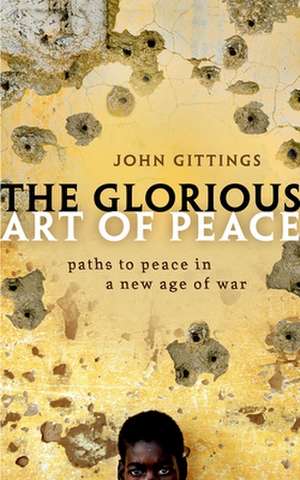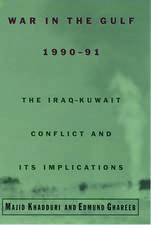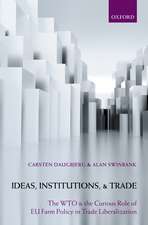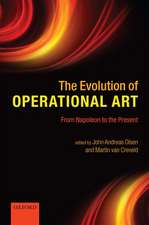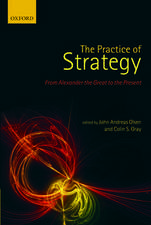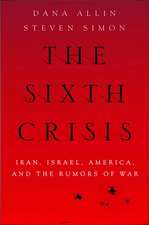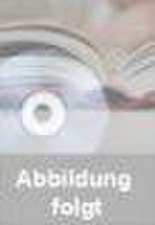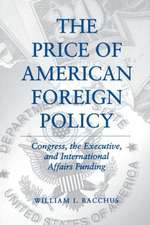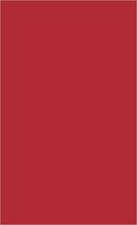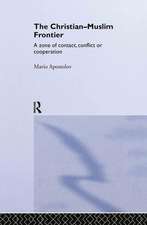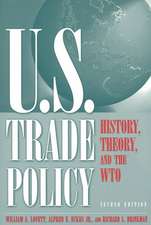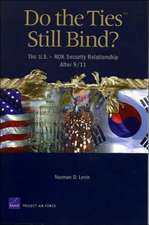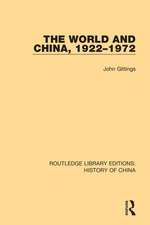The Glorious Art of Peace: Paths to Peace in a New Age of War
Autor John Gittingsen Limba Engleză Paperback – 25 oct 2018
| Toate formatele și edițiile | Preț | Express |
|---|---|---|
| Paperback (1) | 81.05 lei 10-16 zile | |
| OUP OXFORD – 25 oct 2018 | 81.05 lei 10-16 zile | |
| Hardback (1) | 120.50 lei 31-37 zile | |
| Oxford University Press – 23 feb 2012 | 120.50 lei 31-37 zile |
Preț: 81.05 lei
Preț vechi: 89.81 lei
-10% Nou
Puncte Express: 122
Preț estimativ în valută:
15.51€ • 16.13$ • 12.81£
15.51€ • 16.13$ • 12.81£
Carte disponibilă
Livrare economică 13-19 martie
Preluare comenzi: 021 569.72.76
Specificații
ISBN-13: 9780198826897
ISBN-10: 0198826893
Pagini: 336
Ilustrații: 8pp black and white plates
Dimensiuni: 135 x 215 x 2 mm
Greutate: 0.39 kg
Editura: OUP OXFORD
Colecția OUP Oxford
Locul publicării:Oxford, United Kingdom
ISBN-10: 0198826893
Pagini: 336
Ilustrații: 8pp black and white plates
Dimensiuni: 135 x 215 x 2 mm
Greutate: 0.39 kg
Editura: OUP OXFORD
Colecția OUP Oxford
Locul publicării:Oxford, United Kingdom
Recenzii
Detailed but very readable... a welcome beacon of hope and idealism in a time when nationalism and bellicose self-interest are once again in the ascendent around the world.
An urgent, lucid, and perceptive account of a subject which remains sadly neglected in favour of the study of war.
This is a marvellous book combining a remarkable historical perspective with a real sense of current predicaments. John Gittings brings a breadth of knowledge and understanding into the interpretation of peace that provides a much-needed antidote to the emphasis on conflict that is currently so pervasive. In doing so, he achieves the rare feat of combining a hard-headed approach to the issues with a sense of optimism that is rooted in experience. A hugely welcome addition to the literature on peace, and of great value to scholar, student, or activist--indeed, anyone committed to seeking a more peaceful world.
A wonderful study ... One of the achievements of this volume is that it manages to cover a wide range of issues, dynamics, disciplines, instruments, and actors significant to the topic, while also presenting a historical and aesthetic perspective in a very readable and enjoyable fashion.
We need all the insights collected in Gittings's impressive book and more, enriching our culture with more capacity to cooperate, empathize, reconcile and resolve conflict. Violence and war are often symptoms of underlying, unresolved traumas and conflicts. Identify them, solve them: incompatibilities are challenges to make changes that accommodate compatibility. An art, yes, but it can be learnt. Glorious, for sure. And feasible, when we add Gittings's optimism.
Many of our cherished assumptions about war and peace are challenged in this ambitious and refreshing book by the historian and former Guardian journalist John Gittings
This comprehensive history of the arts of peace was an ambitious undertaking that has resulted in a fine study.
Peace, not war, is the true measure of human progress, argues John Gittings ... in an original re-appraisal of history which opens up the prospect of a new, pacific, world order.
John Gittings believes when we do give peace a chance - we flourish ... His book makes interesting arguments for struggling toward peace.
'The Glorious Art of Peace' manages to mix the authority of academic study with the readability of journalism to create a book that is thoroughly enjoyable.
Eminently readable, this book would make a great gift for the activist and sympathetic non-activist alike, providing inspiration from the glorious heritage of peace activism down the ages.
An urgent, lucid, and perceptive account of a subject which remains sadly neglected in favour of the study of war.
This is a marvellous book combining a remarkable historical perspective with a real sense of current predicaments. John Gittings brings a breadth of knowledge and understanding into the interpretation of peace that provides a much-needed antidote to the emphasis on conflict that is currently so pervasive. In doing so, he achieves the rare feat of combining a hard-headed approach to the issues with a sense of optimism that is rooted in experience. A hugely welcome addition to the literature on peace, and of great value to scholar, student, or activist--indeed, anyone committed to seeking a more peaceful world.
A wonderful study ... One of the achievements of this volume is that it manages to cover a wide range of issues, dynamics, disciplines, instruments, and actors significant to the topic, while also presenting a historical and aesthetic perspective in a very readable and enjoyable fashion.
We need all the insights collected in Gittings's impressive book and more, enriching our culture with more capacity to cooperate, empathize, reconcile and resolve conflict. Violence and war are often symptoms of underlying, unresolved traumas and conflicts. Identify them, solve them: incompatibilities are challenges to make changes that accommodate compatibility. An art, yes, but it can be learnt. Glorious, for sure. And feasible, when we add Gittings's optimism.
Many of our cherished assumptions about war and peace are challenged in this ambitious and refreshing book by the historian and former Guardian journalist John Gittings
This comprehensive history of the arts of peace was an ambitious undertaking that has resulted in a fine study.
Peace, not war, is the true measure of human progress, argues John Gittings ... in an original re-appraisal of history which opens up the prospect of a new, pacific, world order.
John Gittings believes when we do give peace a chance - we flourish ... His book makes interesting arguments for struggling toward peace.
'The Glorious Art of Peace' manages to mix the authority of academic study with the readability of journalism to create a book that is thoroughly enjoyable.
Eminently readable, this book would make a great gift for the activist and sympathetic non-activist alike, providing inspiration from the glorious heritage of peace activism down the ages.
Notă biografică
John Gittings is a peace historian who was for many years chief foreign leader-writer and East Asia editor at The Guardian. He was on the editorial team of the Oxford International Encyclopedia of Peace and is a Research Associate of the China Institute at the School of Oriental & African Studies. He was active in the early years of the Campaign for Nuclear Disarmament and in the International Confederation for Disarmament and Peace. He has written extensively on issues of war and peace and on cold war politics, as well as many works on modern China. Earlier books include The Changing Face of China (2005, also published by OUP), Real China (1995), Beyond the Gulf War (1991, editor), and Superpowers in Collision (1982, with Noam Chomsky and Jonathan Steele).
